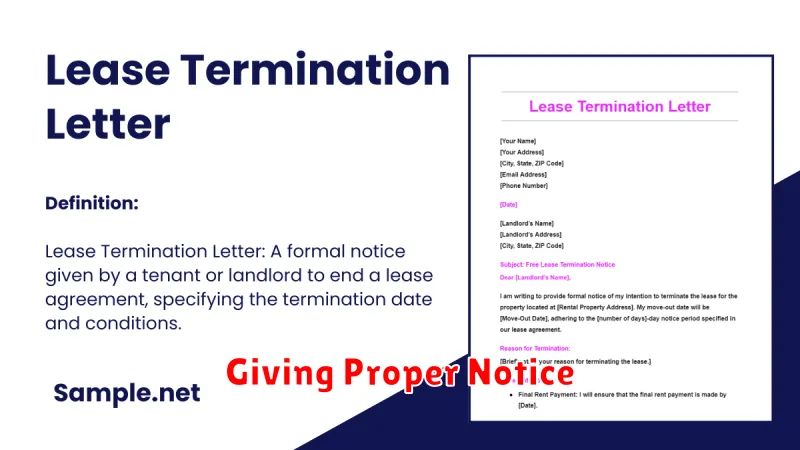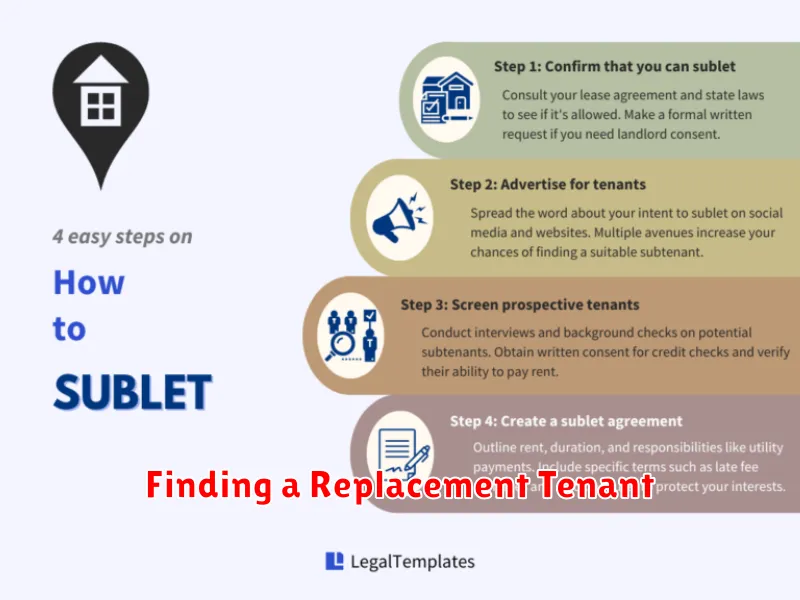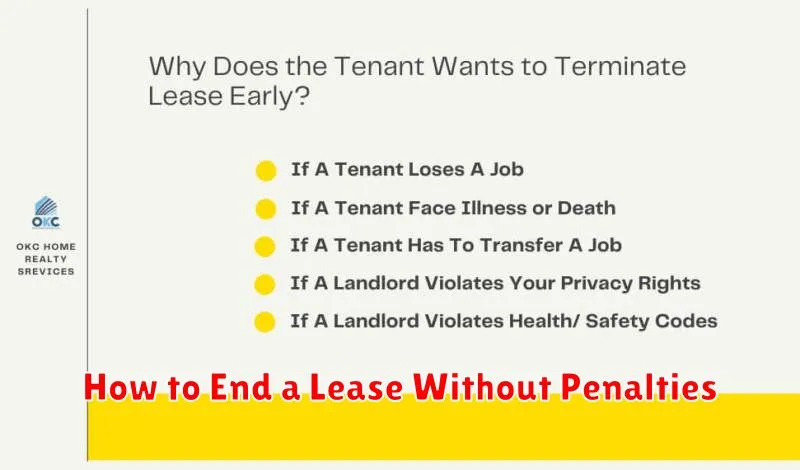Ending a lease early can often be a daunting and expensive process, filled with potential penalties. However, understanding your lease agreement and knowing your options can help you navigate this situation and potentially avoid significant financial penalties. This article explores proven strategies on how to end a lease without penalties, empowering you to take control of your living situation and minimize financial strain. Whether you’re facing unforeseen circumstances, relocating for a job, or simply need to break free from your current lease, this guide provides valuable insights to help you successfully navigate the complexities of early lease termination.
From understanding the legalities of your lease agreement to exploring options like subletting, finding a qualified replacement tenant, or negotiating with your landlord, we’ll cover all the essential steps to minimize or eliminate lease termination penalties. Learn how to effectively communicate with your landlord, document every interaction, and protect yourself from potential legal issues. By following the advice provided in this article, you can increase your chances of successfully ending your lease without incurring significant penalties and move forward with confidence.
Knowing the Terms of Your Lease
A lease is a legally binding contract between a landlord and a tenant. It outlines the terms and conditions of renting a property, including the duration of the tenancy, the amount of rent, and the responsibilities of both parties. Before signing, it’s crucial to carefully read and understand every clause. This includes details about late fees, maintenance responsibilities, pet policies, and procedures for terminating the lease. Failure to comply with the terms can result in financial penalties or even eviction.
Key terms to pay close attention to include the length of the lease term (e.g., month-to-month, one year), the security deposit amount and conditions for its return, and any restrictions on subletting or having additional occupants. Be sure you are clear on what is considered normal wear and tear versus damage that you may be held responsible for. If anything is unclear, ask for clarification from the landlord before signing. Don’t hesitate to seek legal advice if necessary.
Understanding your lease agreement fully protects both you and your landlord. It sets clear expectations and helps prevent disputes. By being proactive and informed, you can ensure a positive and smooth rental experience.
Valid Reasons for Breaking a Lease
Breaking a lease early can have significant financial consequences, so it’s crucial to understand the valid reasons that are typically accepted. These generally fall into a few key categories. Firstly, many leases allow for early termination due to military service requiring relocation. Secondly, some jurisdictions recognize domestic violence as a valid reason, allowing victims to break their lease with proper documentation and legal procedures. Finally, if the property becomes uninhabitable due to the landlord’s negligence in addressing essential repairs, tenants may be able to legally break the lease after providing appropriate notice and documentation of the issues.
It’s important to note that simply wanting to move or finding a better rental opportunity are generally not considered valid reasons for breaking a lease. Carefully review your lease agreement as it outlines specific terms and conditions regarding early termination. It may include clauses addressing specific situations like job relocation or significant health changes. Understanding these details is vital to avoid penalties.
If you believe you have a valid reason for breaking your lease, it’s highly recommended to consult with a legal professional. They can advise you on the specific laws in your area and help you navigate the process correctly to minimize potential financial repercussions. Open communication with your landlord is also essential. Attempting to negotiate a mutually agreeable solution, such as finding a replacement tenant, can often prevent a costly legal battle.
Giving Proper Notice

Giving proper notice is a crucial aspect of professional conduct, whether you’re resigning from a job, terminating a lease, or ending a business contract. It demonstrates respect for the other party and allows them adequate time to prepare for your departure. The notice period allows for a smooth transition and minimizes disruption. Failing to provide sufficient notice can damage your reputation and potentially lead to legal consequences.
The required notice period can vary depending on the specific agreement or legal requirements. Employment contracts often stipulate a notice period, typically two weeks, but it could be longer depending on seniority or company policy. Lease agreements typically require 30 or 60 days’ notice. Always review the relevant documents or consult with legal counsel to determine the appropriate notice period for your situation.
When providing notice, it’s important to be clear and concise. Communicate your intentions in writing, preferably through a formal letter or email. State the effective date of your departure and express your gratitude for the opportunity or relationship. Keep the tone professional and avoid negativity. Offer to assist with the transition process where possible.
Negotiating with Your Landlord

Negotiating with your landlord can be a beneficial process for both parties. Before initiating a conversation, clearly identify your goals. Whether it’s a lower rent, needed repairs, or updated appliances, understanding your desired outcome is crucial. Research comparable properties in your area to strengthen your position and demonstrate the reasonableness of your requests. Document any issues, such as maintenance requests, with dates and photos to support your claims.
When communicating with your landlord, maintain a respectful and professional tone. Clearly articulate your requests and the reasoning behind them. Be prepared to compromise. For instance, if your goal is a lower rent, consider offering a longer lease term in exchange. If repairs are needed, discuss a timeline for completion. Documenting the agreed-upon terms in writing is essential to protect both parties. This can be in the form of an addendum to your lease or a separate agreement.
If direct negotiation proves unsuccessful, explore other options. Familiarize yourself with your local tenant laws and consider contacting your local tenant’s rights organization for guidance. Remember, open communication and a willingness to negotiate can often lead to a mutually beneficial outcome.
Finding a Replacement Tenant

Finding a suitable replacement tenant is crucial for a smooth transition and to avoid financial penalties. It’s your responsibility as the current tenant to find someone to take over the lease agreement for the remainder of your term. Start by carefully reviewing your lease for any specific clauses regarding subletting or assigning the lease. Understand the required procedures and any associated fees. Communicate promptly with your landlord about your intent to vacate and your search for a replacement.
Begin your search by utilizing your personal network. Reach out to friends, colleagues, and family who might be interested or know someone who is. Online platforms, including social media groups and specialized housing websites, are also effective tools for reaching a wider audience. Clearly outline the details of the property, including the rent, amenities, and lease terms. Thoroughly screen potential replacements by checking references, verifying income, and conducting background checks. Choosing a responsible and reliable tenant is essential.
Once you have identified a suitable candidate, present their application to your landlord for approval. This typically includes a completed application form, proof of income, and references. Cooperate fully with your landlord during the application process to ensure a smooth transition. After the landlord approves the new tenant and they sign the necessary paperwork, your responsibility is complete. Confirm with your landlord the exact date your lease obligations end.
Handling Fees and Legal Steps
Handling fees are charges assessed for processing, managing, or overseeing a transaction or service. These fees can cover various costs, such as administrative expenses, record keeping, and other operational overheads. It is crucial to understand the reason for any handling fee and to ensure it is reasonable and clearly disclosed before agreeing to any service or purchase. Excessive or hidden handling fees can be a red flag and should be questioned.
If you believe a handling fee is unfair, deceptive, or not properly disclosed, several legal steps can be taken. Initially, try contacting the business directly to dispute the charge. If this proves unsuccessful, you may wish to file a complaint with your local consumer protection agency or the Better Business Bureau. Depending on the nature and severity of the issue, more formal legal action such as filing a lawsuit in small claims court might be considered.
When dealing with handling fees, it is essential to document everything. Keep records of all communications, including receipts, contracts, and any correspondence with the business. This documentation will be valuable if you need to escalate the matter to consumer protection agencies or pursue legal recourse. Thorough documentation strengthens your position and helps demonstrate the validity of your claim.
Getting Your Security Deposit Back
Retrieving your security deposit when moving out of a rental property requires careful attention to the terms of your lease agreement. Understand your responsibilities regarding cleaning, repairs, and notification deadlines. A thorough move-out cleaning is crucial, often exceeding a typical weekly cleaning. Address any damages beyond normal wear and tear, and document everything with photos or videos as evidence of the condition you left the property in. Communication with your landlord throughout the process is key.
Prior to your move-out date, schedule a pre-move-out inspection with your landlord. This allows them to identify any potential issues and gives you an opportunity to address them before you leave. This proactive approach can significantly increase your chances of receiving your full deposit back. During the final walk-through, review the property together and discuss any discrepancies. Keep a copy of the move-out inspection report for your records.
Your landlord is obligated to return your security deposit within a specified timeframe outlined in your lease or state law. If deductions are made, they must provide a written, itemized list explaining the reasons and associated costs. If you disagree with the deductions, don’t hesitate to communicate with your landlord and attempt to resolve the issue amicably. If necessary, consult your local tenant rights organization or an attorney for further assistance.

